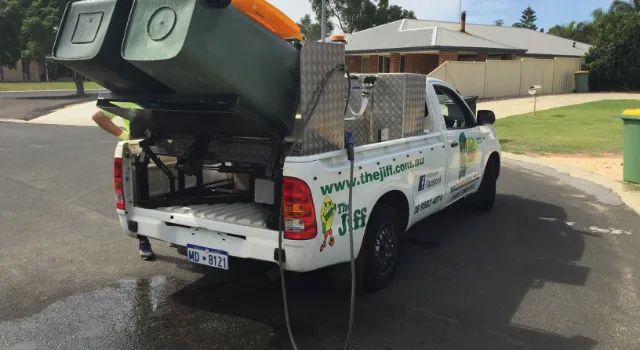Tips for Fresher Bins
Inside you Home
- Remember that all food waste should be wrapped in newspaper.
- Sort and separate food waste, general waste and recyclables, consider having two small bins – one for recyclables and one for general waste.
- Keep the lids on all your bins tightly closed, especially the kitchen food waste bin. This prevents flies and pests getting into your waste and laying eggs.
- Keep all food covered, leaving food waste exposed allows flies to lay eggs.
- Double-wrap meat, bones and unwanted pet food as this will help reduce the smell and stop flies.
- Place left-over meat, prawn shells and similar food scraps in the freezer until collection day.
- Drain or wash excess liquids from food scraps before putting them in your kitchen bin.
- Line your kitchen bin with paper towel to soak up wet residues.
- Keep your kitchen bin out of direct sunlight, preferably in a cupboard to prevent flies.
- Empty your inside bin frequently, either every day or every second day.
- Wipe up spills inside your kitchen bin and wash or disinfect regularly both inside and out.
- Rinse all food packaging (recyclable and non-recyclable) before putting it in bins.
- Rinsing yoghurt pots, meat trays and other packaging will help reduce smells.
- Keep clean and tidy. Good hygiene in the home is the best was to prevent the spread of disease.
- Try not to buy, prepare or throw away more food than you need to. Plan your food menus and use your leftovers – there are many internet sites that can show you how.
Tips for Outside Bins
- Keep your bin lids closed at all times. This prevents flies from laying their eggs in your waste. It also stops smells spreading.
- Store your outside bins in a well-ventilated, shady and convenient location. Keeping your bins out of direct sunlight will help slow general decomposition, reduce smells and stop or slow the development of maggots.
- Keep your bins clean by cleaning up any spillages on the outside or lip of your bin. These spillages could attract flies and vermin.
- If required, rinse your bin after collection with a mild detergent, vinegar and water solution or dilute bleach to kill odours, bacteria and flies. Keep in mind water restrictions. Use a trigger nozzle hose and wash bins on the grass. Strong detergents or bleach should not be put into stormwater drains.
- Do not overfill your bins.
Recycle Bins
- Rinse recyclable food packaging, bottles and cans to remove any excess food residue and allow them to drain thoroughly before putting them in the recycling bin.
- Put newspaper in the bin first to help absorb any moisture and keep the bin clean
Preventing Pests
- If a fly settles on your food waste it may lay eggs. Maggots only exist if flies have been allowed to have access to your rubbish.
- A fly is more likely to lay eggs in your waste BEFORE it is placed in the bin. Therefore, it is important to keep your waste covered and place it in the bin as soon as possible.
- Do not leave food waste exposed in the kitchen where it could attract flies.
- Do not leave pet food out uncovered.
- Ensure pet excrement is removed from your yard regularly and buried or placed in the rubbish bin. Remember to bag or double-bag pet waste. Fly eggs may be laid in pet excrement before it is placed in the bin.
- Gently squeeze the air out of plastic bags before placing in rubbish bin. The lack of air can help slow the development of maggots.
- Pay attention to tell-tale signs of vermin such as cockroaches or mice and take appropriate steps to ensure effective pest control in bin areas.
- If you do have an incident of maggots, most will go when your bin is emptied, however it is also a good idea to clean and disinfect your bin once it has been emptied to kill eggs. Maggots and fly eggs can be killed with boiling water.
- Eliminate maggots by putting salt or vinegar on them.
Here are our prices starting from $11.

